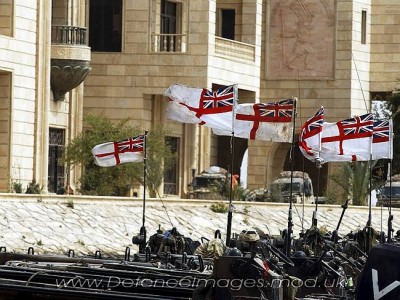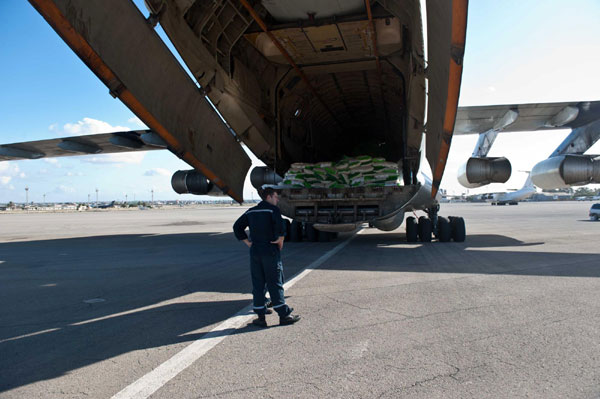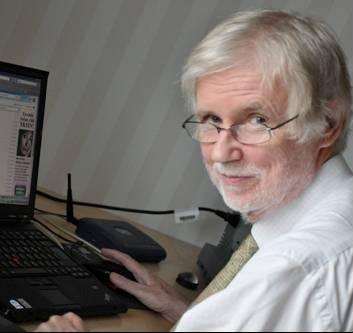External operations now have their justice of the peace

(BRUXELLES2) It's a clap of thunder. The two judgments delivered today by the Grand Chamber of the European Court of Human Rights (ECHR) must be marked as major judgments. And they will certainly cause much ink to flow not only in legal circles but also in military forums and political chancelleries. European judges have indeed recognized themselves as competent to judge facts that took place outside Europe, in a high-intensity conflict zone, where the British army intervened: Basra, Iraq, 2003. The first judgment is about the civilians killed by British forces (Al Skeini judgment); the other concerns the detention of a former basketball player suspected of having been involved in the recruitment of terrorists (Al-Jedda judgment). Let's already see the first judgment, rendered unanimously...
Six deaths in murky circumstances
The case concerns the deaths of six people in Basra between March and November 2003, killed by British forces in rather unclear circumstances. According to the Court, "Three were killed or mortally wounded by bullets by British soldiers; another victim received a fatal wound during a firefight between a British patrol and unidentified gunmen; another was beaten by soldiers, another was beaten by British soldiers, then forced to throw himself into a river, where he drowned". On the body of the last victim, "died at a British military base, there were 93 injuries"(Nb: the son of the Basra police colonel)! In several of these cases, "no verbal summons" was carried out, the soldiers thinking - on the basis of information received beforehand that their lives were in danger. In others, it is about "stray bullets". The Ministry of Defense decided not to not open an independent investigation, accept responsibility for the deaths or pay "just satisfaction".
The competent Court in the event of an occupying power
European states normally only have the obligation to apply the European Convention on Human Rights on their territory. And the court normally limits its jurisdiction to the same area. But there are "exceptional circumstances", where the Court considers itself competent. One of these exceptions is precisely the case where a State "assumes prerogatives of public power in the territory of another State". In this case, this was the case consider the judges: "the United Kingdom had (in Iraq) the status of occupying power". He assumed "certain of the prerogatives of public power which are normally those of a sovereign State, in particular responsibility for maintaining security in the south-east of the country".
A breach of the Convention
Admittedly, the Court considers that in a context such as Iraq and Basra in 2003 - war, foreign and hostile region, collapse of the civil infrastructure, serious cultural and linguistic misunderstandings between the occupants and the local population, etc... - the obligation procedure arising from the ECHR must be "realistically applied". She nevertheless believes that the United Kingdom has "failed in (its obligation) to carry out an independent and effective investigation into the deaths of the relatives of five of the six applicants, and violated Article 2 of the ECHR (right to life)". It obliges the payment of 17.000 euros for moral damages to five plaintiffs out of six.
Guidelines for Investigations
In its arguments, the Court in fact lays down a guideline for the military authorities of an occupying power to define what constitutes an effective and independent investigation.
Conducting an effective investigation means:
- " whether, in each of these cases, the soldiers who fired the fatal shots had fired in accordance with the rules of opening fire";
- in the event of a shooting, "determine whether adequate measures were taken to protect nearby civilians";
- to interrogate, "as soon as possible after the incidents, military witnesses, and in particular the alleged perpetrators, by a completely independent specialized investigator";
- deploy "the efforts necessary to identify Iraqi eyewitnesses and to persuade them that appearing and testifying in this capacity would not have put them at risk, that their statements would be treated seriously and that a rapid follow-up would be given to them".
Conduct an independent investigation
The Court clarifies that an investigation "remained entirely under the control of the military hierarchy"And"limited to taking statements from the soldiers involved" East "inadequate". As is the investigation conducted by a "special section
of investigation which was not "not, during the reporting period, operationally independent of the military hierarchy".
On the other hand, it considered as conforming to the ECHR an investigation "public and complete" on the circumstances of the death of the son of the Colonel of the police of Basra, Baha Mousa; although conducted late. NB: After a civil appeal against the Ministry of Defense, Colonel Moussa obtained recognition of British responsibility and 575.000 £ for damages; a public inquiry has been opened as announced by the Minister of Defense in May 2008 before Parliament (his report has not yet been delivered).
Download the judgment in "B2's docs"
At a time when the British government is trying to whittle down the power of the Court of Strasbourg, the latter once again marks its independence of spirit but also its legal audacity.
Concretely, this judgment should lead to an overhaul of the legal procedures in progress in the armies in the event of an external operation. The case of Afghanistan in particular is similar to that of Iraq and could lead to an inflation of procedures. One could also consider that in the Indian Ocean and maritime piracy cases, the States participating in the ECHR exercise the prerogatives of public power...



